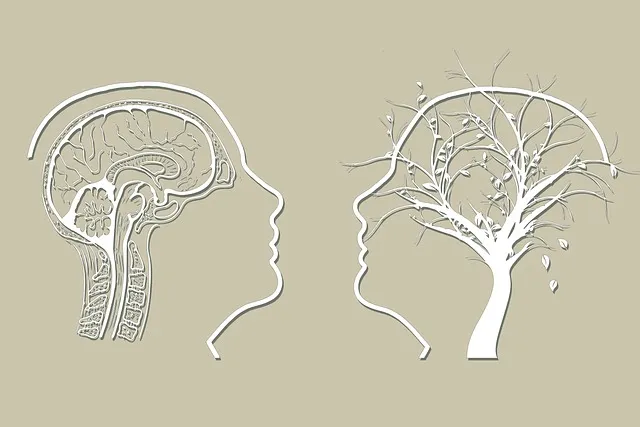Kaiser, renowned for its comprehensive healthcare, offers crucial mental health support, particularly for trauma survivors. With a focus on culturally sensitive care and personalized services, they prioritize healing and recovery. Their integrated approach includes therapy, counseling, and innovative digital tools like the Mental Wellness Podcast Series. Evaluating their trauma-specific services is essential, as Kaiser aims to provide accessible, early intervention for mental wellness concerns, including PTSD treatment and risk management planning. By expanding online platforms and community partnerships, Kaiser can enhance its mental health care, offering effective support and empowering long-term recovery for its diverse population.
Trauma is a significant public health concern, affecting individuals across diverse communities. This article explores the critical role of mental health services in supporting trauma victims and delves into how Kaiser, a leading healthcare provider, addresses this need. We examine the impact of trauma, the comprehensive approach taken by Kaiser’s mental health care system, and strategies to enhance access to trauma-specific support. Discovering Golden does Kaiser have mental health services reveals a robust framework aimed at healing and empowering individuals post-trauma.
- Understanding Trauma and Its Impact
- The Role of Mental Health Services in Trauma Support
- Kaiser's Approach to Mental Health Care: A Comprehensive Overview
- Assessing the Availability of Trauma-Specific Services at Kaiser
- Enhancing Access: Strategies for Bettering Trauma Support Provision
Understanding Trauma and Its Impact

Trauma is a complex and profound experience that can leave lasting effects on an individual’s mental and emotional well-being. It stems from various sources, including but not limited to, physical or sexual abuse, violent events, natural disasters, or war. Understanding trauma involves recognizing its multifaceted nature and the unique way it impacts each person. Every individual copes with trauma differently, making empathy and personalized support crucial.
At Kaiser, known for its comprehensive healthcare services, mental health support is a cornerstone of patient care. Given that many individuals affected by trauma may seek help from healthcare providers like Kaiser, offering culturally sensitive and competent services becomes essential. The organization’s focus on Healthcare Provider Cultural Competency Training and implementing Empathy Building Strategies ensures that staff are equipped to provide effective support. By fostering cultural sensitivity in mental healthcare practice, Kaiser aims to create a safe and supportive environment for all patients, especially those who have experienced trauma, allowing them to begin their journey towards healing and recovery.
The Role of Mental Health Services in Trauma Support

Mental health services play a pivotal role in trauma support, offering specialized care tailored to individuals’ unique needs. Organizations like Kaiser, known for their comprehensive healthcare services, provide a promising example of how mental health support can be integrated into trauma care. Their offerings, often including therapy, counseling, and medication management, are designed to address the complex emotional and psychological aftermath of traumatic events.
The Mental Health Policy Analysis and Advocacy group emphasizes the importance of accessible and effective trauma support services. By ensuring these resources are readily available, communities can foster healing and Self-Esteem Improvement for those affected by trauma. Kaiser’s approach, reflecting current best practices in mental health care, contributes to a holistic understanding of trauma support services provision.
Kaiser's Approach to Mental Health Care: A Comprehensive Overview

Kaiser is renowned for its comprehensive approach to mental health care, offering a wide range of services designed to support individuals across various aspects of their mental wellness journey. Beyond traditional therapy and counseling, Kaiser prioritizes holistic care by integrating mental health services into primary care settings, ensuring accessibility and continuity. This strategic integration allows for early intervention and management of mental health concerns, including stress-related issues and the development of self-care routines tailored to individual needs.
The organization’s commitment to mental wellness extends beyond clinical care. Kaiser has produced a Mental Wellness Podcast Series, providing valuable insights and practical tips for managing mental health. This innovative approach leverages digital technology to reach a broader audience, encouraging open conversations about mental health and promoting self-care routine development for better mental health outcomes.
Assessing the Availability of Trauma-Specific Services at Kaiser

At Kaiser, evaluating the availability of trauma-specific services is a critical step in understanding the support offered to individuals dealing with traumatic experiences. While Kaiser is renowned for its comprehensive healthcare coverage, including mental health services, it’s essential to inquire about their specialized trauma care. Many survivors struggle with post-traumatic stress disorder (PTSD) and other trauma-related conditions, necessitating tailored interventions. Therefore, exploring whether Kaiser provides these services, such as trauma therapy or support groups, is crucial for those seeking healing and recovery.
The availability of such programs reflects a commitment to addressing the unique needs of trauma survivors. Positive thinking and resilience building are integral components of recovery, and mental health professionals can facilitate this through effective risk management planning. By assessing these services at Kaiser, individuals can gain insights into the level of support they might receive, ensuring access to quality care when navigating their healing journey.
Enhancing Access: Strategies for Bettering Trauma Support Provision

Trauma support services provision has evolved to meet the growing demand for mental health care, especially for individuals dealing with complex traumatic stress. Enhancing access to these services is crucial in ensuring that folks, like those Kaiser may serve, receive the necessary mood management and inner strength development. Strategies such as integrating online platforms, expanding community-based programs, and training a broader range of healthcare professionals can significantly improve accessibility.
For instance, digital tools can provide crisis intervention guidance to individuals in remote areas or those hesitant to seek help in person. Community partnerships can extend the reach of trauma support networks, fostering environments where open discussions about mental health are encouraged. By adopting these approaches, Kaiser and other healthcare providers can better serve their populations, addressing not just symptoms but also empowering individuals with coping mechanisms for long-term recovery.
Trauma support is a critical aspect of comprehensive mental health care, and Kaiser’s approach to trauma-specific services has significant implications. By understanding the impact of trauma and leveraging mental health resources effectively, as highlighted by Kaiser’s model, we can enhance access to care. Further research and strategic initiatives are needed to ensure that individuals facing trauma-related challenges have access to golden opportunities for healing, just as Kaiser has pioneered in providing robust mental health services.





